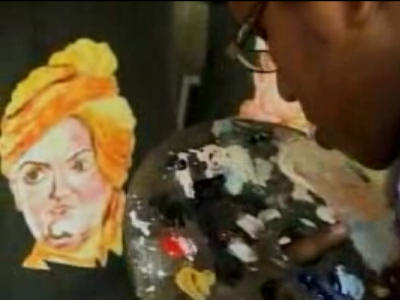How to apply a `` curse (book curse) '' to a book to protect the book you wrote yourself

by
In the era where books can be published 'from one book' or 'for hundreds of yen ', the task of 'making a book' in the Middle Ages was done in a few years. That's why they sometimes 'curse' books to prevent them from being stolen or destroyed. Atlas Obscura summarizes what the curse on the book was, the bookcurse .
Protect Your Library the Medieval Way, With Horrifying Book Curses | Atlas Obscura
http://www.atlasobscura.com/articles/protect-your-library-the-medieval-way-with-horrifying-book-curses

In the Middle Ages, when it came to 'writing a book,' the work was limited to natural light hours of the day. Even if I light a candle at night, I think that I can write letters, but the fire of the candle could burn the book. The brush practitioner (author of writing and copying) spent a limited amount of time at the table and carefully brushed so as not to lose writing. According to records at the time, the work of the brushman 'was lost light from the eyes, bent the spine, adversely affected the intestines and ribs, and the pain reached the kidneys and caused fatigue throughout the body.'
Books made through the work described above are 'protected' because they are invaluable. 'Protection' at that time was a word. In other words, a 'curse' was given at the beginning and end of the book, threatening the thief. The content of the curse is unforgiving, and if anyone hurts or steals a book, he or she will have to be sacrificed by the devil with a sword, sacrifice his hands, sacrifice his eyes, It was like being scolded and being drowned in hellfire.

At that time, God and the devil were more believable than they were today, so people treated books carefully, fearing dying in distress.
Marc Drogin wrote a book in 1983 called
May the sword of anathema slay
If anyone steals this book away.
Si quis furetur,
Anathematis ense necetur.
'If anyone stole this book, he would be killed with an excommunication sword.'
If you want to curse yourself even more, you can use 'anathema-maranatha', a curse that comes on the day of judgment (death). Also, the more detailed information such as 'how suffering' is written, the stronger the curse becomes, so the creative brushman wrote more detailed contents. The following is an example.
“If anyone take away this book, let him die the death; let him be fried in a pan; let the falling sickness and fever size him; let him be broken on the wheel, and hanged.Amen.” If the book is removed, the person will die, fried in oil, sick and sick, pulled on wheels and hung. (Amen)
A longer curse can be:
“For him that stealeth, or borroweth and returneth not, this book from its owner, let it change into a serpent in his hand & rend him.Let him be struck with palsy & all his members blasted.Let him languish in pain crying aloud for mercy, & let there be no surcease to his agony till he sing in dissolution.Let bookworms gnaw his entrails in token of the Worm that dieth not, & when at last he goeth to his final punishment, let the flames of Hell consume him for ever. ”(If you steal this book, or borrow it and do not return it to its owner, the book will turn into a snake and tear the thief. The thief's body is paralyzed, and his companions are blown up. The thief Is weakened by pain and crying for mercy; pain never ends until the thief dies; when the beetle devours its internal organs and the final punishment is given, the thief is burned forever by the fire of hell)
Of course, not all calligraphers created these curses from scratch, and the popular curses were sometimes diverted to other books.
Related Posts:
in Note, Posted by darkhorse_log








